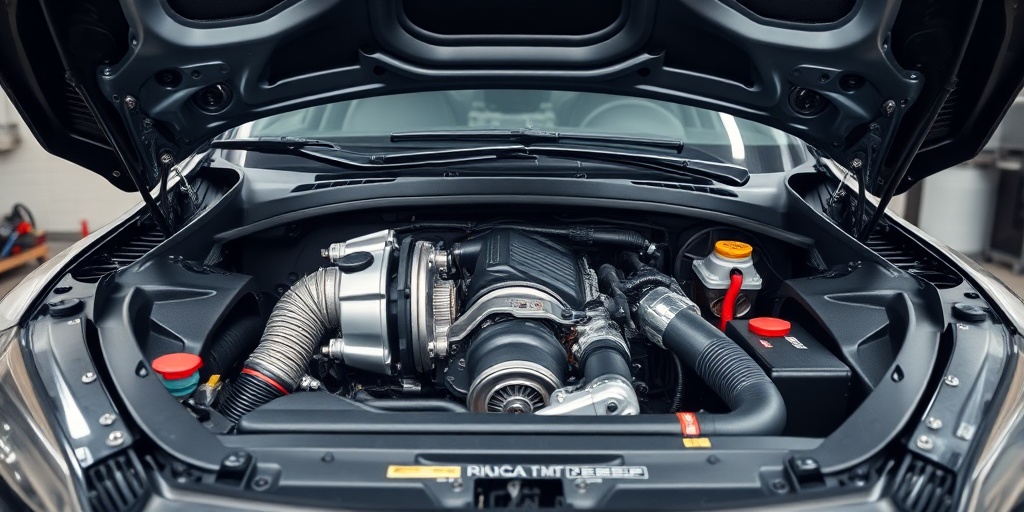
How to Calculate Vehicle Horsepower Without a Dyno
Learn the physics and methods behind estimating horsepower using acceleration data and vehicle specifications, perfect for enthusiasts who want to measure their car's performance without expensive dyno testing.
Every car enthusiast has wondered about their vehicle's true horsepower output. While professional dyno testing provides the most accurate results, it's expensive and not always accessible. Fortunately, you can estimate your vehicle's horsepower using basic physics principles and readily available data.
Understanding the Physics Behind Horsepower Calculation
Horsepower is fundamentally a measure of how much work an engine can perform over time. When we calculate horsepower from acceleration data, we're measuring the energy required to accelerate a specific mass (your vehicle) to a certain velocity within a given timeframe.
The basic formula involves three key physics concepts: force, acceleration, and power. Force equals mass times acceleration (F = ma), and power equals force times velocity (P = Fv). By combining these principles with your vehicle's weight and acceleration times, we can estimate the power output.
What Data Do You Need?
To calculate your vehicle's horsepower accurately, you'll need several pieces of information:
- Vehicle Weight: Use the curb weight (vehicle without passengers or cargo). This is usually found in your owner's manual or online specifications.
- Acceleration Time: The time it takes to accelerate from 0-60 mph (or 0-100 km/h). This can be measured with smartphone apps or performance timers.
- Optional Data: Engine torque specifications and top speed can improve calculation accuracy.
Step-by-Step Calculation Method
Here's how the calculation works in practice:
- Calculate Acceleration: Divide the target speed (60 mph or 100 km/h) by your acceleration time to get acceleration in distance per second squared.
- Determine Force: Multiply your vehicle's mass by the calculated acceleration to find the force required.
- Calculate Power: Multiply the force by the final velocity to get power in watts, then convert to horsepower.
- Account for Losses: Add approximately 15-20% to account for drivetrain losses and other factors.
Calculate Your Vehicle's Horsepower Now
Skip the complex math and get instant results with our online horsepower calculator. Simply enter your vehicle's weight and acceleration time for accurate estimates.
Start CalculatingFactors That Affect Accuracy
While this method provides good estimates, several factors can impact accuracy:
- Drivetrain Type: Front-wheel drive vehicles typically lose 10-15% of power, rear-wheel drive loses 15-20%, and all-wheel drive can lose 20-25%.
- Aerodynamic Drag: At higher speeds, wind resistance becomes a significant factor that our basic calculation doesn't fully account for.
- Road Conditions: Tire grip, surface quality, and weather conditions all affect acceleration times.
- Vehicle Modifications: Aftermarket modifications can significantly alter power output from stock specifications.
Comparing Methods: Calculator vs Dyno Testing
Our calculation method typically provides estimates within 10-15% of actual dyno results, making it quite reliable for most applications. However, dyno testing remains the gold standard because it:
- Measures power directly at the wheels or engine
- Provides detailed torque curves across the RPM range
- Accounts for all real-world losses and inefficiencies
- Offers precise measurements for tuning purposes
For most enthusiasts, our calculation method provides sufficient accuracy for comparing modifications, estimating performance, and satisfying curiosity about their vehicle's power output.
Pro Tips for Better Results
- Use multiple acceleration runs and average the results
- Ensure consistent testing conditions (same fuel level, tire pressure, weather)
- Test on a flat, straight road with minimal traffic
- Consider your vehicle's specific drivetrain losses for more accuracy
Conclusion
Calculating horsepower without a dyno is not only possible but surprisingly accurate when done correctly. By understanding the physics principles and using reliable data, you can get meaningful insights into your vehicle's performance.
Whether you're tracking the effects of modifications, comparing different vehicles, or simply satisfying your curiosity, this method provides a cost-effective alternative to professional dyno testing. Remember that while these calculations offer excellent estimates, they should complement rather than replace professional testing when precise measurements are critical.
Ready to Calculate Your Vehicle's Horsepower?
Use our free online calculator to get instant horsepower estimates
Start Calculating Now